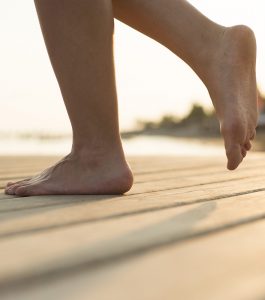Posturology is a discipline that studies the problems that can arise in the delicate mechanism that correlates man, his body and the surrounding space.
Humans have a very complex sensory-motor system that lets them control motor behaviours with respect to themselves, the environment they move in and other individuals.
In order to take on a certain position in space, we all unconsciously and automatically activate a series of movements resulting from the processing of information sent by the postural receptors to the central nervous system.

If underestimated for too long, a postural decompensation can lead to joint damage, muscular problems and respiratory disorders.
The so-called postural receptors such as the foot, eye, inner ear, jaw and joints are very important organs for maintaining postural balance. If problems arise, they send certain discomfort signals to the central nervous system, which then seeks to compensate them by making the body take on an incorrect posture.

The foot is one of the most important receptors: it is also responsible for standing erectly and is a sensory-motor organ. A problem at the level of the foot is able to significantly change the tone of a person’s overall posture, triggering a chain reaction of compensations that can lead, for example, to damage to the spinal column.
Incorrect posture can be the cause of lumbago, dorsalgia, joint pain and headaches, which can seriously affect our quality of life. Incorrect posture over the years can also lead to the onset of diseases such as arthritis, tendinopathies, respiratory blockage and poor circulation.
A postural examination makes it possible to interpret and associate the various physical problems that cause postural errors. Instrumental tests are used for this, including an anthropometric plumb line and inclinometer, and computerised instrumental tests such as the baropodometric and stabilometric platform.
The results of the various tests make it possible to diagnose the identified postural issues and the priorities for treating the body’s various compensations to the triggering cause.
Depending on the case, treatments may require the use of orthotic means such as corrective or compensatory orthotics.